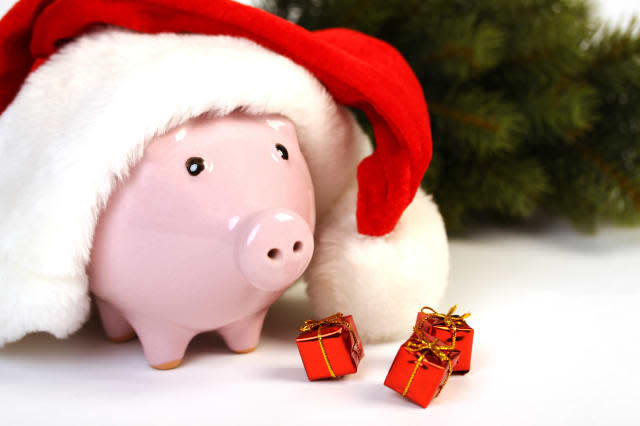What's the best way to save for Christmas?

Christmas decorations are starting to appear in the shops, and the kids are talking about what they'd like from Santa. Meanwhile, we're worrying about how to pay for it all.
Brits will be spending a whacking £20 billion on Christmas this year, according to research from Halifax, but one in six people say it may take them all year to pay it all off.
See also: Countdown to Christmas: Best credit cards revealed
See also: Roll-out of online claims system could hit families at Christmas
Last year, we spent an average of £452.41 each, with booze, presents and the Christmas roast topping the list of expenses - and one in four say they're worried about the cost. Most people say they are hoping to cut back a bit on their spending this year, but most still worry about how they'll pay for everything.
"Although it feels like summer has only just passed, it's not long until the festive period, and some shops are already starting to sell festive stock," says Giles Martin, head of savings at Halifax.
"To avoid a bill shock, it's worth starting to save now to spread the cost over several months. It's reassuring to see that one in ten of us already do this, and save through the year or use a savings account to save up for big events such as Christmas."
The earlier you start saving, of course, the easier it will be. It helps if you can put the same amount by each week, and if you have a target in mind.
There's nothing stopping you just putting your money in a jar, but using a special Christmas savings scheme can help you avoid dipping into your cash too early. Here are some of the options.
Christmas clubs
Christmas clubs are run by retailers, social groups and the Post Office, and deliver your year's savings a few weeks before Christmas. They don't pay interest on the money, though, and you may be tied to spending your savings with particular retailers.
After the Farepak Christmas hamper savings club went bust ten years ago, many people have quite rightly been wary of saving for Christmas this way. Christmas clubs aren't regulated in the same way that other financial organisations are, and if yours goes out of business, you might lose all of the money you put into it. However, if the club is a member of the Christmas Prepayment Association (CPA), you should have some protection. You can check, here.
Credit unions
Some credit unions offer Christmas club savings schemes that work in much the same way as other Christmas clubs. There are, though, some advantages. You should be able to earn money on your savings, thanks to a dividend, and your money's protected by the Financial Services Compensation Scheme, so you'd get it back if the club went bust.
Credit unions bring together local people, church groups, or those that work in a particular business - anything that counts as a 'common bond'. You can find a list here to check whether you're eligible.
Building societies
Some building societies offer dedicated Christmas savings accounts - although you've missed the boat this time, as you can only open them early in the year. You'll be able to access the money a few weeks before Christmas and should get interest on your account.
Supermarket savings schemes
Many supermarkets let you save throughout the year using a saver card, with extra bonuses if you put in enough cash. Other schemes start in the weeks leading up to Christmas, allowing you to collect coupons when you do your weekly shop. The downside, though, is that you're obliged to spend your savings there, and can't shop around for a better deal.
What we cut back on to save money at Christmas (Halifax)
Christmas cards: 28%
Christmas wrapping paper and tags: 27%
Tableware (e.g. centrepiece, crackers, etc.): 15%
Indoor lights/decorations: 13%
Christmas trees: 12%
Gifts for work colleagues: 12%
Outdoor lights/decorations: 12%
Snacks/party food: 11%
Attending the work Christmas party: 10%
Gifts for family/friends: 8%
Alcohol: 8%
The venue (eg restaurant to have Christmas lunch): 8%
Dessert (eg Christmas pudding): 6%
Mince pies: 6%
Gifts for children's teachers: 5%
The main course: 5%




